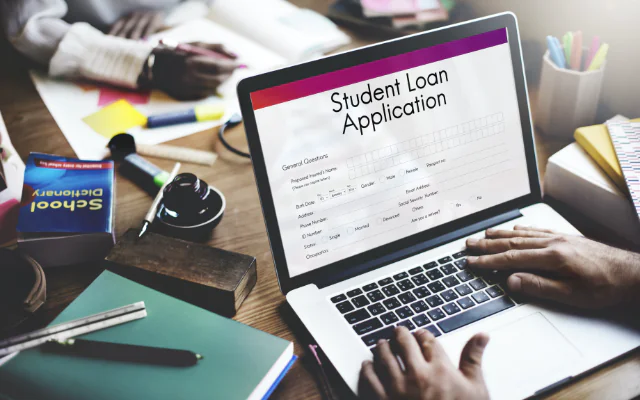Student loans are a common reality for many people pursuing higher education today. While they provide essential funding to access college and university programs, these loans come with financial responsibilities that can influence your financial future in profound ways. Understanding how student loans impact your financial trajectory is crucial for making informed decisions about borrowing, repayment, and long-term financial planning.
Key Takeaways:
- Student loans can affect your credit score, borrowing capacity, and financial stability.
- Responsible borrowing and early repayment can mitigate negative effects.
- Awareness of loan terms and repayment options is essential for financial health.
- Student debt impacts major financial milestones such as buying a home or saving for retirement.
What Are Student Loans and Why Do People Take Them?
Student loans are a form of debt designed to help students pay for college, university, or other post-secondary education expenses. These loans typically cover tuition, room and board, books, and sometimes living expenses.
Most students take out loans because higher education costs have risen dramatically over the past few decades, making it difficult to afford college without financial aid. Government-backed loans (such as federal student loans in the U.S.) often offer more favorable interest rates and repayment options than private loans, but both types can impact your financial future in significant ways.
How Does Student Loan Debt Affect Your Credit Score?
Your credit score is a numerical representation of your creditworthiness and is used by lenders to assess your risk as a borrower. Student loans can influence your credit score in several ways:
- Payment history: Consistently making on-time payments improves your credit score, while missed or late payments can severely damage it.
- Credit mix: Having a variety of credit types, including installment loans like student loans, can improve your score.
- Credit utilization: Although student loans are installment loans and don’t count toward credit utilization like credit cards, high overall debt can indirectly impact your credit risk profile.
If managed well, student loans can help build a positive credit history. However, defaulting or missing payments can result in long-term credit damage, making it harder to access credit or loans later.
What Impact Do Student Loans Have on Your Ability to Borrow in the Future?
Student loans are considered long-term debt and can affect your borrowing power for major life expenses like buying a home, leasing a car, or starting a business.
Debt-to-Income Ratio
Lenders calculate your debt-to-income (DTI) ratio to determine if you can afford new debt. Student loans add to your monthly obligations, increasing your DTI ratio and potentially reducing your borrowing capacity.
For example, even if you have a steady income, a high student loan payment can limit how much a mortgage lender is willing to loan you, or it might increase your interest rates on new loans.
How Do Student Loans Influence Your Savings and Investments?
Repaying student loans can limit the amount of money you have available for savings and investments early in your career. This can delay or reduce your ability to:
- Build an emergency fund
- Save for a down payment on a house
- Contribute to retirement accounts such as 401(k) or IRAs
Because of this delay, you may miss out on the power of compound interest, which is critical for long-term wealth accumulation.
What Are the Psychological and Emotional Effects of Student Loan Debt?

Financial stress caused by student loan debt can affect your mental health and overall well-being. Studies have shown that individuals burdened with large student debt balances are more likely to experience anxiety, depression, and reduced quality of life.
This psychological impact can influence career choices, leading some to prioritize higher-paying jobs over passion or community service roles, which can affect long-term career satisfaction.
What Are Your Repayment Options and How Do They Affect Your Financial Future?
There are several repayment options available for student loans, including:
- Standard repayment: Fixed monthly payments over a set period, usually 10 years.
- Graduated repayment: Payments start lower and increase over time.
- Income-driven repayment (IDR): Payments based on your income and family size, often extending repayment to 20-25 years.
- Loan forgiveness programs: Available for certain professions or after a specific number of payments.
Choosing the right repayment plan can help you manage your monthly budget and reduce financial stress. However, longer repayment terms usually mean more interest paid over time, which can increase the total cost of your loan.
How Can Student Loans Affect Your Major Life Decisions?
Student loan debt can delay or alter key life milestones such as:
- Buying a home: High monthly loan payments may reduce your ability to save for a down payment.
- Starting a family: Financial strain might postpone having children or affect your ability to support a larger household.
- Career choices: Debt might push you toward higher-paying jobs over more fulfilling or socially impactful careers.
- Retirement: Delayed savings may result in insufficient retirement funds, potentially requiring you to work longer or reduce your retirement lifestyle.
What Are the Long-Term Economic Effects of Student Loans on Society?
Beyond individual impacts, student loan debt affects the broader economy:
- Delayed home ownership reduces housing market activity.
- Reduced consumer spending due to debt repayment limits economic growth.
- Student debt contributes to wealth inequality, especially among marginalized communities.
- High student debt can limit entrepreneurship and innovation due to lack of available capital.
How Can You Manage Student Loan Debt Without Sacrificing Your Financial Goals?
This article would explore practical strategies for balancing student loan repayment with other financial priorities such as saving for retirement, buying a home, or investing. It would cover budgeting techniques, refinancing options, income-driven repayment plans, and creative financial planning approaches to ensure borrowers don’t have to put all other goals on hold. The piece could also include expert tips on negotiating loan terms and making smart trade-offs.
What Are the Hidden Costs of Student Loans Beyond the Monthly Payments?
Many borrowers focus solely on their monthly payments but overlook other financial and psychological costs associated with student loans. This article would discuss interest accrual, the opportunity cost of delayed investments, increased stress levels, potential impact on insurance premiums, and even how student debt can influence credit insurance or rental applications. It could also examine the ripple effects on family finances and mental health.
How Does Student Loan Debt Affect Different Demographics and What Can Be Done?
Student debt impacts different groups unequally. This article would analyze how race, gender, socioeconomic background, and geographic location influence borrowing patterns and repayment challenges. It would highlight statistics showing disparities and explore policy solutions, community resources, and targeted financial education efforts designed to close the gaps. The piece would include personal stories to humanize the issue.
What Are the Pros and Cons of Refinancing Your Student Loans?

Refinancing student loans can be a smart move for some borrowers but risky for others. This detailed article would explain how refinancing works, eligibility criteria, potential savings, and pitfalls like losing federal loan protections. It would guide readers through assessing whether refinancing fits their financial situation, comparing offers, and timing the decision for maximum benefit.
How Do Student Loans Influence Career Choices and Job Satisfaction?
This article would delve into how student debt pressures shape graduates’ career paths. It could explore the tension between pursuing passion versus higher-paying jobs, the impact on entrepreneurial ventures, and the psychological toll of feeling “trapped” by debt. It could include surveys, expert commentary, and advice for balancing financial realities with long-term career fulfillment.
What Are the Long-Term Financial Consequences of Defaulting on Student Loans?
Defaulting on student loans has serious repercussions that extend far beyond missed payments. This comprehensive article would explain the legal, financial, and personal consequences of default, including wage garnishment, tax refund seizures, credit damage, and barriers to future borrowing. It would also cover options for recovery, such as rehabilitation and consolidation programs.
How Can Parents Help Their Children Avoid Student Loan Debt?
Parents play a crucial role in preventing or minimizing student debt for their children. This article would offer practical advice on saving strategies like 529 plans, scholarships, choosing affordable colleges, and encouraging financial literacy. It would also discuss the emotional and communication aspects of family financial planning and the pros and cons of co-signing loans.
What Are Income-Driven Repayment Plans and How Do They Affect Your Financial Future?
Income-driven repayment (IDR) plans adjust monthly student loan payments based on income and family size. This article would explain different IDR plans, eligibility, pros and cons, and how they affect the total interest paid and time to loan forgiveness. It would also analyze their impact on credit, tax implications, and long-term financial planning.
How Does Student Loan Debt Impact Homeownership Rates Among Young Adults?
Homeownership is a significant financial milestone often delayed by student debt. This article would explore the connection between student loans and reduced home buying among Millennials and Gen Z, backed by data and expert analysis. It would also suggest strategies for overcoming these barriers and discuss potential policy solutions aimed at improving housing affordability.
What Role Do Student Loans Play in Wealth Inequality?
Student loans don’t just affect individuals—they contribute to broader social and Economic disparities. This article would examine how debt accumulation perpetuates wealth gaps, particularly among minority communities, and how it limits intergenerational wealth transfer. It would discuss systemic issues and propose reforms to create a more equitable financial future.
Also Read : Which Type of Business Loan Suits Your Needs?
Conclusion
Student loans are a powerful tool that enable many to access higher education, but they come with financial consequences that can impact your future in significant ways. The key to minimizing negative effects is informed borrowing, understanding repayment options, and prioritizing early debt management.
Taking control of your student loans and making strategic financial choices can help you maintain good credit, afford major purchases, save for retirement, and achieve financial independence sooner. While student loan debt is a challenge, it doesn’t have to define your financial future.
FAQs
1. Do student loans affect my credit score?
Yes, student loans appear on your credit report. Timely payments can improve your credit score, while missed payments can harm it.
2. Can student loans prevent me from buying a home?
High student loan payments can increase your debt-to-income ratio, potentially limiting your mortgage options or increasing interest rates.
3. Is it better to pay off student loans early?
Paying off loans early can save you money on interest and free up money for savings, but be sure to check for prepayment penalties and balance your other financial goals.
4. What happens if I can’t make my student loan payments?
You may qualify for income-driven repayment plans or deferment/forbearance options, but missed payments can lead to default and severe credit damage.
5. Are there any student loan forgiveness programs?
Yes, certain public service jobs and professions qualify for loan forgiveness after meeting specific criteria.
6. How do student loans impact retirement savings?
High loan payments can limit your ability to contribute to retirement accounts, potentially reducing your retirement nest egg due to lost compound growth.
7. Can student loans be discharged in bankruptcy?
Generally, student loans are difficult to discharge in bankruptcy, but in rare cases, extreme hardship may qualify for discharge.



